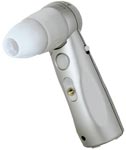First of all I want to thank you for this great site.
In Dec. of 2006 I went to a T.P. doctor, mainly to get a prescription for propecia and to hear what he had to say about how good of a candidate I would be for a hair transplant. I found out at that time that he still used the mini & micro minigraft procedure, with magnification and backlighting.(no steroscopic microscope). In Dec. 2007 I was looking at his web site,and to his credit, is now doing follicular unit grafting using stereoscopic microscopes.
My question is this,how difficult is it for his staff to learn to use microscopes and to be cutting in follicular units instead of minigrafts? I guess what I really want to know is how much time should I give them, to learn the “new” procedure before I go back for another consultation?
Do you have any photos that show the difference between minigrafting and folicular unit graphing on the scalp?
Thanks again.
P.S. How much does a stereoscopic microscope cost? This doctor has been doing hair transplants for 14 years and is now just getting some.They must cost alot!
Cost for hair transplant at New Hair Institute… as low as $5 per graft.
Cost of microscope at a local scientific store… around $500.
Cost of a well done follicular unit hair transplant… priceless.
The difference between minigraft and follicular unit transplantation is small, but can be significant when you look closely at the growing hair. Minigrafts and micrografts transplant skin between the hair follicles and this skin can produce changes in the scalp at the point the hair exits the skin. There may be cobblestoning from the transplanted skin. Follicular unit transplantation only transplants the natural occurring units of hair as they exit the scalp and most of the skin edge is removed so that the point of exit of the hair is normal.
More importantly, the difference when using a microscope for dissection is that you do not waste good follicular units since you can see minute details (under the microscope).
For more details, read our published articles on the subject:

 You can use a video microscope and look at your own hair. These run about $200-400 or so and are often sold online (price varies per vendor and tool used). I like the
You can use a video microscope and look at your own hair. These run about $200-400 or so and are often sold online (price varies per vendor and tool used). I like the  I have a dispute with my friend that Bruce Willis in the movie Perfect Stranger is using “movie hair”.
I have a dispute with my friend that Bruce Willis in the movie Perfect Stranger is using “movie hair”. Some people are sensitive or allergic to the non-active ingredient in Rogaine. I do not believe that a small alcohol content is bad for the scalp, but it can cause drying in some people and the minoxidil itself could be an irritant in others (or you could be one of the “lucky” ones and experience drying and irritation).
Some people are sensitive or allergic to the non-active ingredient in Rogaine. I do not believe that a small alcohol content is bad for the scalp, but it can cause drying in some people and the minoxidil itself could be an irritant in others (or you could be one of the “lucky” ones and experience drying and irritation). I would really like to know if its a bad idea to take propecia and another hair loss treatment Provillus at the same time. I’ve been doing it for a month now and hair loss has only increased. Provillus has saw palmetto in it, a DHT inhibitor, could all this be too much and making things worse. I’m using rogain as well.
I would really like to know if its a bad idea to take propecia and another hair loss treatment Provillus at the same time. I’ve been doing it for a month now and hair loss has only increased. Provillus has saw palmetto in it, a DHT inhibitor, could all this be too much and making things worse. I’m using rogain as well. This is interesting and I thank you for sending this. The problem I have is that there were prior studies that showed that 1/2 dose of Propecia (0.5mg finasteride) is about 70% as effective as a full dose.
This is interesting and I thank you for sending this. The problem I have is that there were prior studies that showed that 1/2 dose of Propecia (0.5mg finasteride) is about 70% as effective as a full dose.